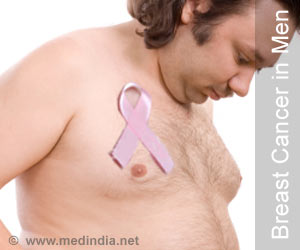Physicians may not recommend a specific treatment option for a few major illnesses, and breast cancer is one of them.

There is more than one type of preventative breast surgery but this study looked only at cases where cancer has been diagnosed in only one breast. This form prophylactic breast surgery, called a contralateral prophylactic mastectomy, entails removing the healthy breast at the same time as the cancerous breast. The procedure can reduce the risk of breast cancer recurrence in women who have a strong family history of breast or ovarian cancers and in women who have a genetic mutation that makes breast cancer more likely.
"While effective for such groups," explained Dr. Andrea Covelli, lead author and a University of Toronto general surgery resident whose research work was supervised by Dr. Nancy Baxter of St. Michael's Hospital. "The number of prophylactic mastectomies across North America has risen among women without these underlying conditions – among women who have only an average risk of developing cancer in their non-cancerous breast."
Previous national studies have shown that instances of prophylactic breast surgery among early-stage, average risk women have increased nearly twelvefold in the United States over the last decade. In Canada, rates increased by 140 per cent between 2008 and 2010.
Dr. Covelli interviewed 45 surgeons in North America to identify factors that determine the course of treatment.
In the United States, some states legislate that surgeons present all treatment options to patients. The research found that surgeons complied in the 20 states with such legislation but generally surgeons did not recommend one procedure over another. Instead, they encouraged patient choice. Canadian surgeons discussed similar surgical options with their patients. However, they more often specifically recommended breast-conserving surgery and counseled against prophylactic mastectomies.
MRI exams have a high rate of false-positive results so patients who were given their exam results without detailed explanations were often concerned about new disease in addition to the recently diagnosed tumour.
If women were being treated at health care facilities with access to immediate reconstruction, they were also more likely to choose prophylactic surgery.
"The availability of immediate breast reconstruction was another main factor in patients' decisions," said Dr. Covelli.
Immediate reconstruction was associated with the choice of prophylactic mastectomy and is more widely available in the United States than in Canada. In both countries, many patients requested a prophylactic mastectomy after returning from a consult with a reconstructive surgeon.
"We need to look at what happens during that consult to better understand patient decision-making," said Dr. Covelli. "Patients should ask for their doctor's opinion if helpful to them. Most surgeons have years of experience treating breast cancer and can provide valuable counsel and advice."
Source-Eurekalert
 MEDINDIA
MEDINDIA




 Email
Email










